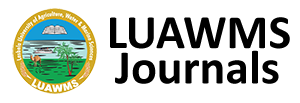TECHNOLOGICAL ACCEPTANCE AMONG PAKISTANI PUBLIC-SECTOR UNIVERSITY TEACHERS: CHALLENGES AND OPPORTUNITIES OF TEACHING LITERATURE ONLINE
Keywords:
Online teaching, English literature, Pakistan, Challenges, OpportunitiesAbstract
In the context of the pandemic, teaching and learning in higher education shifted greatly towards the online mode of learning. Having moved on from the scenario, we have looked at the perceptions of teachers regarding challenges and opportunities provided by online teaching and learning of literature. Five teachers from two public-sector institutions were interviewed using a semi-structured interview schedule. The interviews were analysed using thematic analysis. The analysis showed that teachers faced a number of challenges such as lack of connectivity, lack of competence and training. They also believed that students tended to become rather passive in online classes. However, they not only pointed out the challenges but also focussed on how literature teaching had become more fun due to the use of online learning platforms. We recommend that online teaching of literature should be continued to some extent post- Covid 19 as well.
References
Adnan, M., & Anwar, K. (2020). Online Learning amid the COVID-19 Pandemic: Students' Perspectives. Online Submission, 2(1), 45-51.
Ali, W. (2020). Online and remote learning in higher education institutes: A necessity in light of COVID-19 pandemic. Higher education studies, 10(3), 16-25.
Almahasees, Z., Mohsen, K., & Amin, M. O. (2021, May). Faculties and students’ perceptions of online learning during COVID-19. In Frontiers in Education (Vol. 6, p. 638470). Frontiers Media
Babaee, R., & Yahya, W. R. B. W. (2014). Significance of Literature in Foreign Language Teaching. International Education Studies, 7(4), 80-85.
Bertea, P. (2009). Measuring Students’ attitude Towards E-Learning. A Case Study. In Conference proceedings of eLearning and Software for Education (eLSE) (Vol. 5, No. 01, pp. 417-424). Carol I National Defence University Publishing House.
Blau, I., Shamir-Inbal, T., & Avdiel, O. (2020). How does the pedagogical design of a technology-enhanced collaborative academic course promote digital literacies, self-regulation, and perceived learning of students? The internet and higher education, 45, 100722.
Braun, V., & Clarke, V. (2006). Using thematic analysis in psychology. Qualitative research in psychology, 3(2), 77-101.
Bryman, A. (2012). Chapter 11: Asking questions. Social Research Methods. 4th ed. Oxford: Oxford University Press.
Burgess, S., & Sievertsen, H. H. (2020). Schools, skills, and learning: The impact of COVID-19 on education. VoxEu. org, 1(2), 73-89.
Cohen, L., Manion, L., & Morrison, K. (2007). Experiments, quasi-experiments, single-case research and meta-analysis. Research methods in education, 6.
Cucinotta, D., & Vanelli, M. (2020). WHO declares COVID-19 a pandemic. Acta bio medica: Atenei parmensis, 91(1), 157.
Dobre, I. (2007). Evaluation of students’ knowledge-an experiment in e-learning. Seria Matematica—Informatica—Fizica, 59(2), 43-48.
Huber, S. G., & Helm, C. (2020). COVID-19 and schooling: evaluation, assessment and accountability in times of crises—reacting quickly to explore key issues for policy, practice and research with the school barometer. Educational assessment, evaluation and accountability, 32, 237-270.
Hussain, S., & Ali, A. (2022). Exploring the Preferences and Attitudes of Undergraduates regarding the Online Classes of English Literature in Universities of Pakistan. Linguistics and Literature Review, 8(1), 106-129.
Judd, M. M., Spinelli, F., Szucs, B., Crisp, N., Groening, J., Collis, C., ... & Richards, A. (2021). Learning from the pandemic: The impacts of moving student-staff partnerships online. Student Success, 12(3), 73-83.
Kamal, T., & Illiyan, A. (2021). School teachers’ perception and challenges towards online teaching during COVID-19 pandemic in India: an econometric analysis. Asian Association of Open Universities Journal, 16(3), 311-325.
Kenya, U. (2020). Are our children learning? The status of remote-learning among school-going children in Kenya during the Covid-19 crisis. Uwezo. https://palnetwork.org/wp-content/uploads/2020/05/Usawa-Agenda-2020-Report.
Khan, I., Ahmad, A., & Khan, T. (2022). A Qualitative Investigation of Issues and Success Stories of Online Teaching in Pakistani Higher Education in the Context of Covid-19 Pandemic. CITY UNIVERSITY RESEARCH JOURNAL OF LITERATURE AND LINGUISTICS, 5(1), 57-68.
Kulal, A., & Nayak, A. (2020). A study on perception of teachers and students toward online classes in Dakshina Kannada and Udupi District. Asian Association of Open Universities Journal, 15(3), 285-296.
Mendes, A. Q., Bastos, G., Amante, L., Aires, L., & Cardoso, T. M. L. (2019). Virtual pedagogical model: development scenarios.
Mondol, M. S., & Mohiuddin, M. G. (2020). Confronting Covid-19 with a paradigm shift in teaching and learning: A study on online classes. International Journal of Social, Political and Economic Research, 7(2), 231-247.
Murphy, M. P. (2020). COVID-19 and emergency eLearning: Consequences of the securitization of higher education for post-pandemic pedagogy. Contemporary Security Policy, 41(3), 492-505.
Reading, A. (1989). Teaching literature. Longman. Londres.
Shenoy, V., Mahendra, S., & Vijay, N. (2020). COVID 19 lockdown technology adaption, teaching, learning, students’ engagement and faculty experience. Mukt Shabd Journal, 9(4), 698-702.
Published
How to Cite
Issue
Section
License
Copyright (c) 2023 Sehrish Shafi, Dr. Ghazal Shaikh, Tania Shaikh

This work is licensed under a Creative Commons Attribution-NonCommercial-ShareAlike 4.0 International License.



